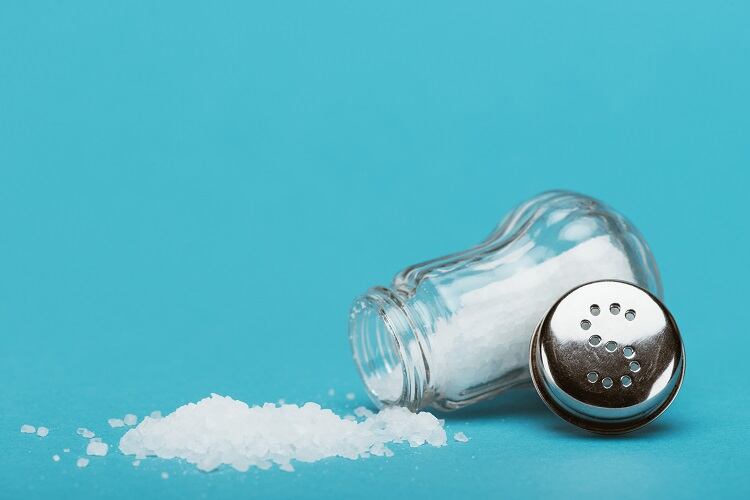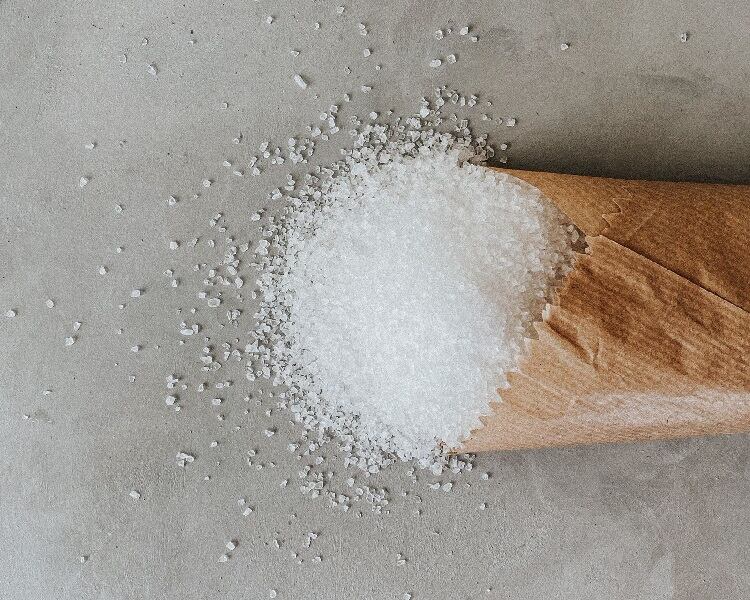Excessive salt consumption is thought to be detrimental to human health. In the UK, for example, it is estimated that if people were to reduce their daily intake from 8.1g to the recommended 6g per day, it would reduce the number of strokes by 22% and heart attacks by 16%.
Salt reduction, therefore, offers an important opportunity to improve population health.
With that in mind, Dutch ingredients maker Fooditive has sought to develop a low-sodium alternative for what is undoubtedly ‘one of the most important raw materials’.
“We truly believe lower sodium is going to positively impact a lot of people with high blood pressure, and of course help those at risk of kidney disease or kidney failure who cannot consume salt for those reasons,” explained Fooditive founder and CEO Moayad Abushokhedim.
“Our ingredient is going to help people with health issues, but also people who are watching their salt intake and want to live a healthy lifestyle.”
It tastes ‘saltier than actual salt’
Fooditive has coined its new solution LowSalt. The product is made by breaking down potassium chloride with citric acid, mixing it with a carrier, and spray drying the solution to achieve a low-sodium salt ‘twice as salty’ as natural salt.
With the patent currently being filed, the start-up couldn’t disclose more about the process or carrier, other than that it relies on a ‘complex process and science’. What Abushokhedim could divulge, is why LowSalt is ‘way better’ than the conventional ingredient.
“It’s got to do with the potassium intake,” he told FoodNavigator. “The product is not zero potassium, that is something we cannot achieve. But it’s 100% lower potassium. We use two ingredients only: potassium chloride and sodium chloride. Those are the two ingredients we rely on to get the salty effect.”
The result is a product that tastes ‘salter than actual salt’. “When we tried it the first time, we were surprised at how salty it was,” Abushokhedim recalled. “It’s more than 200 times saltier than actual salt, so you only need to use 50% of how much you would usually use.”
The founder continued: “We reduce the negative impact on our body due to the fact that Fooditive's LowSalt replaces some of the salt with potassium".

Aside from being saltier, and allowing for sodium reduction, there may even be other benefits. A recent study – considered one of the largest dietary intervention studies ever conducted – suggested that swapping out table salt for a reduced sodium, added potassium substituted had positive effects on population health.
In the 2021 study, published in New England Journal of Medicine, findings revealed that rates of stroke, major cardiovascular events, and death were lower in participants that consumed a sodium chloride and potassium salt substitute compared to a 100% sodium chloride table salt.
Reduced sodium at a reduced price
LowSalt is intended to be used as a salt substitute in B2B food formulation. The product is thinner than conventional salt due to the spray drying technique.
On the ingredients list, the product will feature as ‘reduced sodium salt’, because, as the CEO explained, it is just that: “We can’t take the credit of being completely sodium-free. It’s a reduced sodium salt.”
In food applications, Fooditive expects less product will be required compared to conventional salt, but acknowledged this may have implications for salt’s other functions – such as its use as a preservative.
If salt is used to offer acidity to a formulation, then substituting with LowSalt may require an additional acidic ingredient, but Fooditive is convinced it provides ‘the taste factor’.
The company is also laser-focused on ensuring its products are affordable. “A lot of people don’t come from families who can afford healthy products and an expensive lifestyle. We’re trying to deliver to those people – who want healthy products, who care about sustainability, but who don’t have the financial ability to [pay high prices].”
Fooditive is currently conducting trials for its LowSalt product in preparation for a 2023 launch.
Precision fermentation-derived salt?
Fooditive has a number of innovative food ingredients in its portfolio, ranging from an upcycled sweetener to a fat replacement product and precision fermentation-derived animal-free casein.
Although the start-up is not leveraging precision fermentation to develop LowSalt, it hopes it will be able to lean on programmed microorganism technology to develop flavours. Developing a salt flavour is of particular interest, but Abushokhedim acknowledged the challenge in ‘feeding’ yeast with glucose (sugar) to produce salt.
“You really need glucose to develop a protein, or enzyme, or anything. So at the end of the day, you’re adding salt’s opposite ingredient – sugar – to achieve saltiness.”

If Fooditive is able to leverage precision fermentation to develop a salt-like product, it believes the ‘saltiness’ could be as much as 200-300% the equivalent of conventional salt. As a result, food formulators would end up using less, he suggested.
“The need for it would be much smaller in comparison to what we use today.”


